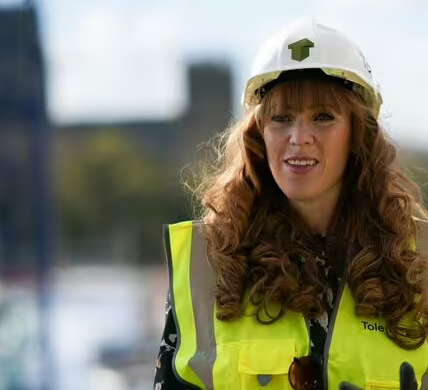The Work and Pensions Secretary, Liz Kendall, has made the major announcement, likely to impact millions.
Work and Pensions Secretary Liz Kendall announced a review of the state pension age.
This follows warnings that people retiring in 2050 could get £800 less per year than today’s pensioners. The Government is required to review the state pension age every six years, but this latest review is starting earlier than expected, as the last one wrapped up in 2023. It will look at whether the current pension age of 66 is still appropriate, considering factors like life expectancy. The Department for Work and Pensions (DWP) said 45% of working-age adults were putting nothing into their pensions, while a staggering 15 million are estimated to be “undersaving”. The self-employed, low-paid and some ethnic minorities are reported to be particularly affected.

Work and Pensions Secretary Liz Kendall (Image: Getty)
Giving a speech in west London, Ms Kendall also announced that she would revive the Pension Commission to consider why future pensioners are on track to be poorer than pensioners now.
She said: “Just because pensioner poverty has fallen does not mean all the problems have gone away. Far from it. Women who are now approaching retirement have half the private pension wealth of men, so the average woman in her late 50s can expect a private pension income of just over £100 a week, compared to £200 a week for men.
“Only one in five of the self-employed are saving into a private pension, down from half in the late 1990s, meaning over three million self-employed people aren’t saving anything at all for their retirement.”
Ms Kendall said young people, in particular, were struggling to save for retirement because of soaring housing costs.
She said young people “haven’t got a hope in hell of getting on the housing ladder” and were being “killed by rent” – which she said was driving a “tsunami of pensioner poverty”.
She said: “Put simply, unless we act, tomorrow’s pensioners will be poorer than today’s, because people who are saving aren’t saving enough for their retirement. And crucially, because almost half of the working age population isn’t saving anything for their retirement at all.”
The Work and Pensions Secretary said she was turning to the Pensions Commission, which last met in 2006, to “tackle the barriers that stop too many saving in the first place”.
The previous commission recommended automatically enrolling people in workplace pensions, which has seen the number of eligible employees saving rise from 55% in 2012 to 88%.
The commission is expected to deliver recommendations on ways to increase retirement income in 2027.
Rachel Vahey, head of public policy at AJ Bell, said: “After 20 years, the government has breathed new life into the Pensions Commission, reviving it to solve the pension under-saving crisis of those due to retire in the mid-century.
“After the success of the Turner Pension Commission in ushering in the automatic enrolment reforms which changed pension saving in the UK forever when they were introduced in 2012, the Government has gone back to the concept of a Pension Commission, hopeful it will bring about the next pension saving revolution.

